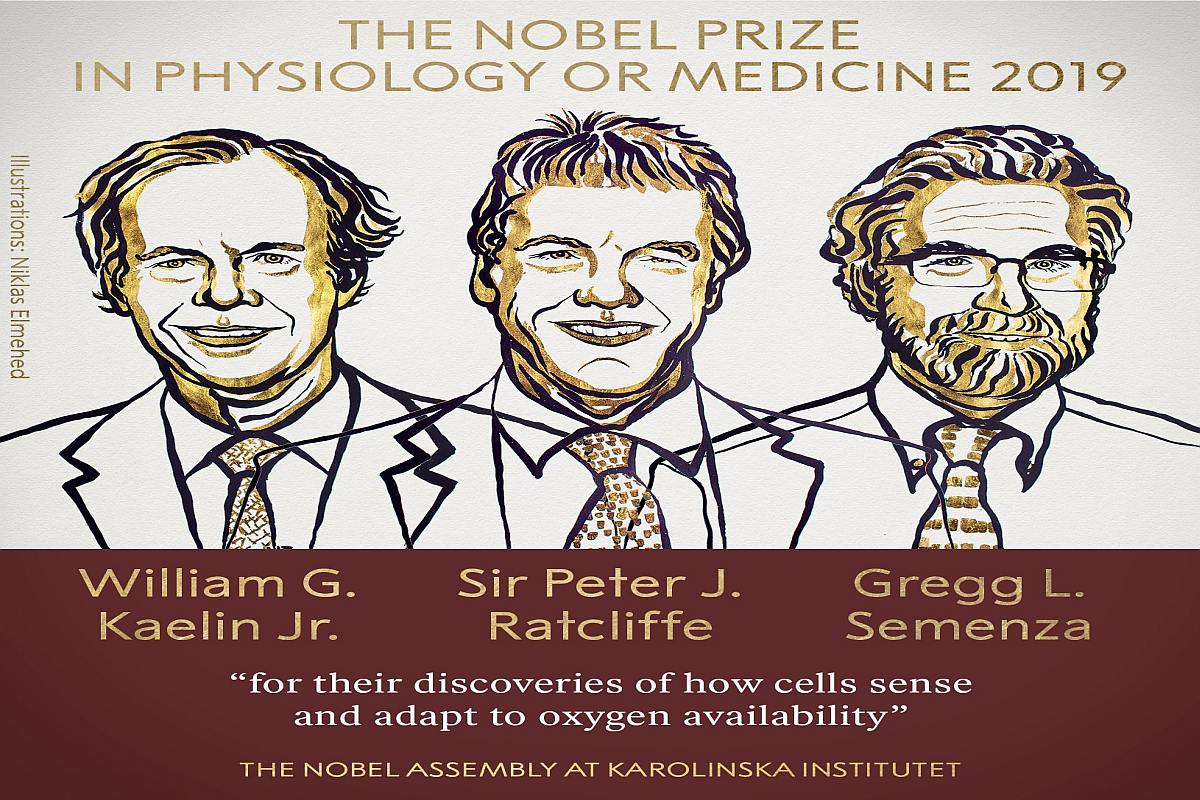US researchers William Kaelin and Gregg Semenza and Britain’s Peter Ratcliffe on Monday won the Nobel Medicine Prize for discoveries on how cells sense and adapt to oxygen availability, the Nobel Assembly said.
“They established the basis for our understanding of how oxygen levels affect cellular metabolism and physiological function,” the jury said, adding that their discoveries have “paved the way for promising new strategies to fight anemia, cancer and many other diseases.”
The Nobel Assembly in explained the research done by the three scientists in a series of tweets, “The fundamental importance of oxygen has been understood for centuries, but how cells adapt to changes in oxygen levels has long been unknown. This year’s Nobel Prize awarded work reveals the molecular mechanisms that underlie how cells adapt to variations in oxygen supply.”
Oxygen sensing is central to a large number of diseases. The discoveries made by this year’s #NobelPrize laureates have fundamental importance for physiology and have paved the way for promising new strategies to fight anaemia, cancer and many other diseases.
“2019 Medicine Laureates William G. Kaelin Jr, Sir Peter J. Ratcliffe and Gregg L. Semenza have identified molecular machinery that regulates the activity of genes in response to varying levels of oxygen.”
“When oxygen levels are low (hypoxia), HIF-1α is protected from degradation and accumulates in the nucleus, where it associates with ARNT and binds to specific DNA sequences (HRE) in hypoxia-regulated genes (1).”
“At normal oxygen levels, HIF-1α is rapidly degraded by the proteasome (2). Oxygen regulates the degradation process by the addition of hydroxyl groups (OH) to HIF-1α (3). The VHL protein can then recognise and form a complex with HIF-1α leading to its degradation in an oxygen-dependent manner (4).”
Congratulations to 2019 Medicine Laureate William Kaelin!
William Kaelin Jr at Harvard University in Cambridge, Massachusetts, Sir Peter Ratcliffe at Oxford University and the Francis Crick Institute in London, and Gregg Semenza at Johns Hopkins University in Baltimore, Maryland won for “how cells sense and adapt to oxygen availability,” the Nobel committee said.
The mechanism has given researchers new insights into treatments for anaemia, cancer and other diseases, beyond describing a fundamental physiological process that helps animals to thrive in some of the highest regions on Earth.










